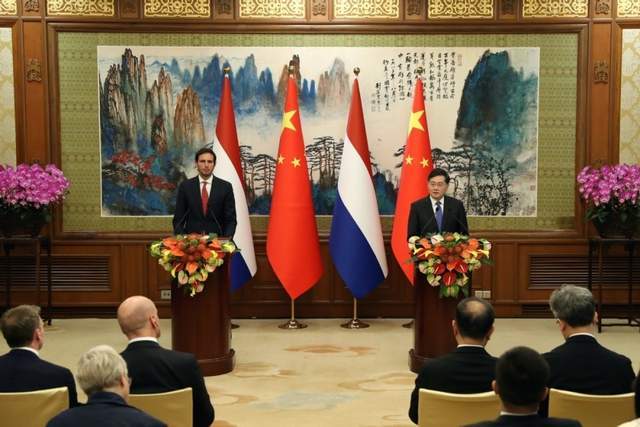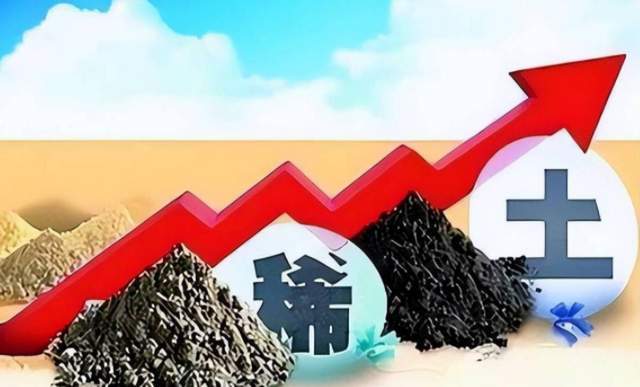The countermeasures are coming! China bans exports of two major rare metals, which could hit the Western semiconductor industry hard
On July 3rd, the Ministry of Commerce and the General Administration of Customs of China issued a notice, deciding to implement export controls on gallium and germanium related substances. Items that meet relevant characteristics cannot be exported without permission. This regulation will be officially implemented from August 1st.
Gallium and germanium are key materials for semiconductor production, mainly used in the manufacturing of computer chips and solar panels. China is the world's largest producer of gallium and also a major producer and exporter of germanium globally. Both rare metals are listed on the EU's key raw material list and are crucial to the European economy. US media believes that China's ban on the export of key raw materials for semiconductor manufacturing is a countermeasure against the US and Europe's chip export controls on China.

This speculation is not unfounded. On June 30th, at the instigation of the United States, the Netherlands announced the inclusion of some semiconductor related products such as lithography machines in export controls, restricting the export of related products to China, which sparked strong dissatisfaction from China. The spokesperson pointed out that the United States, in order to protect its own interests, coerced other countries to implement semiconductor containment against China, artificially promoting the decoupling and disconnection of the industrial chain, which China strongly opposes. Mao Ning also issued a warning at the time, emphasizing that China will closely monitor relevant trends and resolutely safeguard its legitimate rights and interests.
In fact, before China launched countermeasures against the United States and the Netherlands, it had already been patient enough. As early as August last year, the United States introduced the so-called "Chip and Science Act", marking the beginning of sanctions against the Chinese chip industry. Subsequently, it attracted the Netherlands and Japan to join, with the Netherlands mainly responsible for export control of chip manufacturing equipment such as lithography machines, and Japan responsible for exporting raw materials for chip production.

Last December, the Chinese Ministry of Commerce revised the Catalogue of Technologies Prohibited and Restricted from Exporting, intending to include semiconductor production related technologies and raw materials in the scope of export controls. This was already a warning to countries such as the United States and the Netherlands, but the latter insisted on provoking China, which was the main reason for China's ultimate counterattack.
China has not failed to give the Netherlands the opportunity. In the face of the US layout, China has conducted multi-level consultations with the Netherlands on semiconductor export controls. On January 30, 2023, Foreign Minister Qin Gang personally had a phone call with Dutch Deputy Prime Minister and Foreign Minister Hukstra, and on May 23, he met with Hukstra in Beijing. The Netherlands has stated that it will handle economic and trade matters with China in a responsible manner.

On May 10th, Chinese leaders visited the Netherlands and reached a consensus on cooperation in areas such as economy, trade, and climate. Surprisingly, in less than two months, the Netherlands introduced control measures, which were inseparable from the coercion of the United States. Faced with the step-by-step pressure from the West, China implemented export controls on rare metals such as gallium and germanium, which has high legitimacy and rationality.
China's countermeasures mainly target the instigators behind it. According to relevant data, 58% of gallium and 96% of germanium in the United States come from China. After China restricts exports, it is difficult for the US to find alternative products in the short term. In addition, China also holds the important resource of rare earths. If the US continues to provoke, it is not ruled out that China will impose export controls on rare earths and their products, which are essential raw materials for US military manufacturing. The manufacturing of a fighter jet requires about 417 kilograms of rare earths.

The actions of the United States in provoking geopolitical conflicts and disrupting the integrity of international industrial and supply chains should be jointly resisted by the international community. The Netherlands should start from the overall situation of China Netherlands and China Europe relations, maintain good economic and trade cooperation between the two countries, rather than abusing export control measures to cater to the interests of the United States. If not, the outcome will be to swallow the bitter fruit